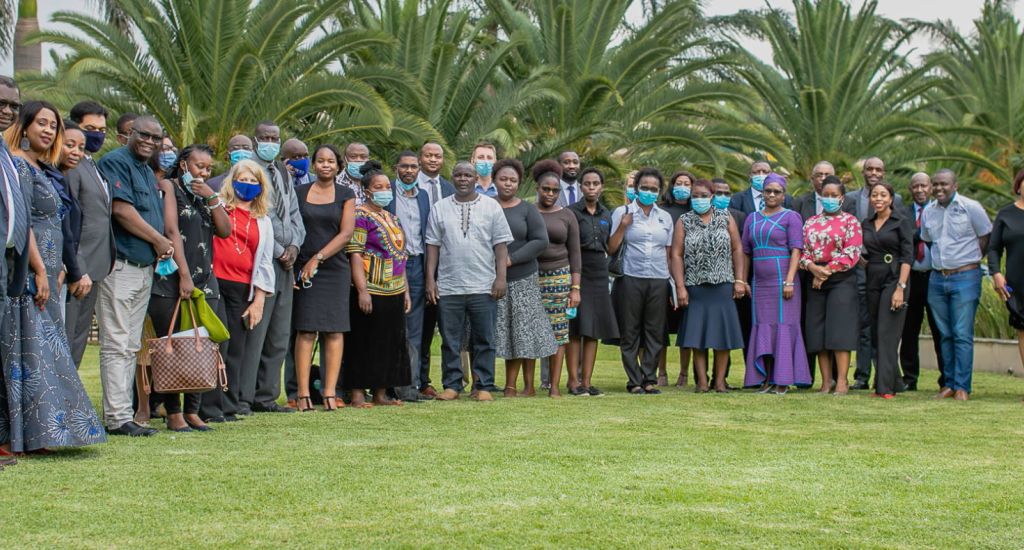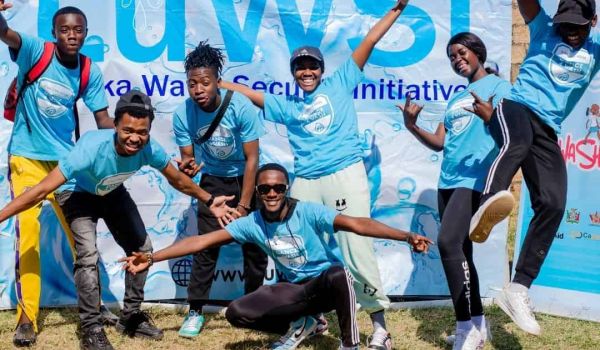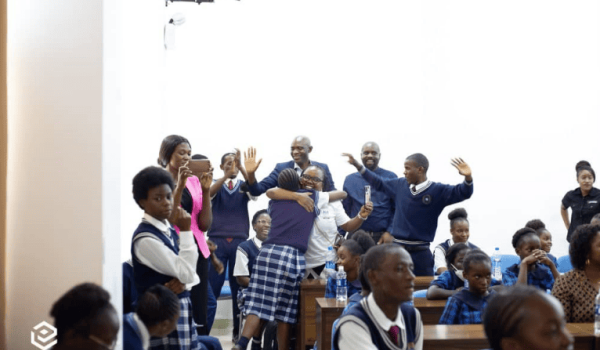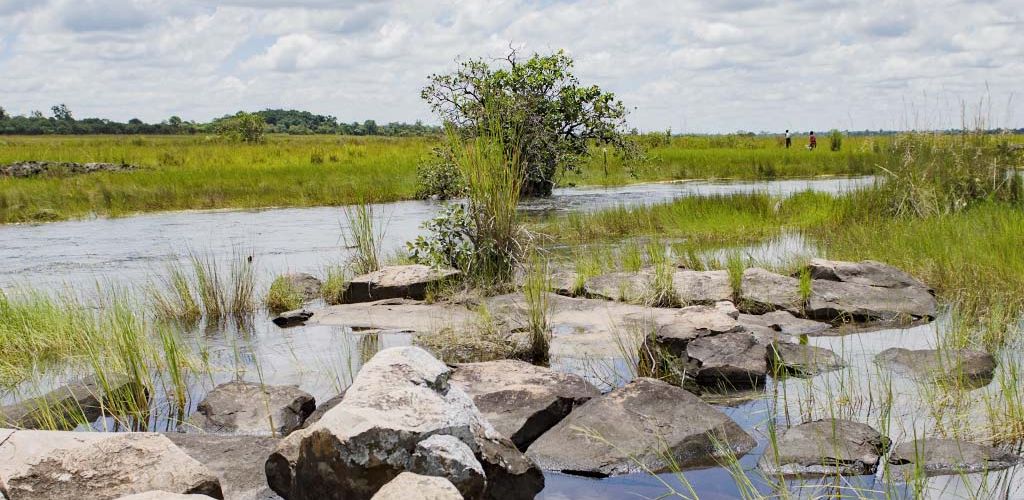
Zambia – Endangered Natural Resources
Improving Natural Resources Management in Zambia
Zambia is a landlocked Central Southern African country which is increasingly urbanised, although much of the country remains underdeveloped and unspoiled. Zambia is one of Africa’s most water-rich nations. However, it also ranks as one of the countries most exposed to climate-driven disruption on the continent. Significant dry spells in 2017, 2018 and 2019 have resulted in low water levels in Lake Kariba, dried up wells and disrupted livelihoods. Recent years have also brought increased flooding, affecting communities in Zambia’s Northern and Eastern regions. Poor governance and unchecked development, especially in urban centres, result in an increasingly poor management of Zambia’s natural resources.
NatuReS Zambia is currently working in two areas: the Chambeshi Catchment, located in the Northern part of Zambia, and the capital Lusaka city, located in the central Southern part of the country.
Partnerships in Zambia
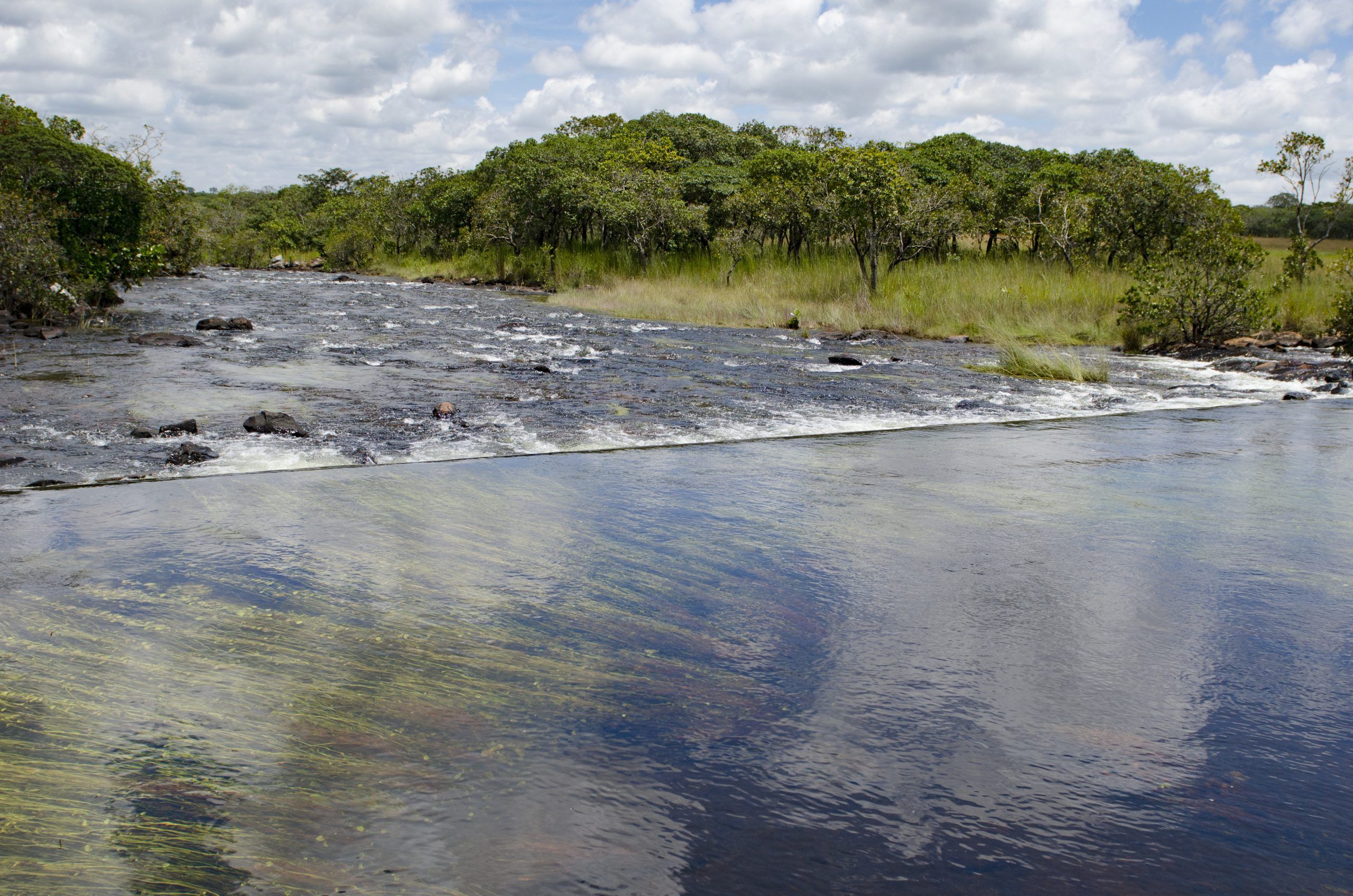
Chambeshi Water Security Partnership
Location: Chambeshi Catchment in the North of Zambia
Aim: The Chambeshi Water Security Partnership (CWSP) was created in 2017 to ensure continued sound water management in the region while agricultural activities are intensifying. The partnership aims to govern, protect and develop the water resources in the Chambeshi Catchment in a participatory manner, contributing to water security for sustainable social and economic development.
Activities:
Three main activity areas:
1.) Strengthening multi stakeholder partnerships to improve water security
- Bringing together private, public sector and civil society in the catchment
- Capacity building for communities to engage in catchment protection
2.) Supporting water users to implement “no regret” voluntary measures to improve water security in a participatory manner
- “No regrets” means taking climate-related decisions that can be justified from economic, social and environmental perspctives. This is for example achieved by building resilience to different climate risks.
- Improving storage of and access to water, catchment protection and pollution reduction; construction of OLAM‘s multi-purpose dam for irrigation, livestock and community use equally, in line with a livelihood improvement plan
- Afforestation to protect forests and major water sources
3.) and spreading good practice in water stewardship
- Promoting innovative standards, among them the Alliance for Water Stewardship (AWS) Standard
NatuReS working areas: Catchments
Partners
Public Sector: Ministry of Agriculture, Ministry of Chiefs and Traditional Affairs, Ministry of Land and Natural Resources – Forestry Department, Kasama Municipal Council, Chambeshi Water Supply and Sewerage Company
Civil Society: World Vision Zambia, Netherlands Development Cooperation, WWF
Private Sector: Olam
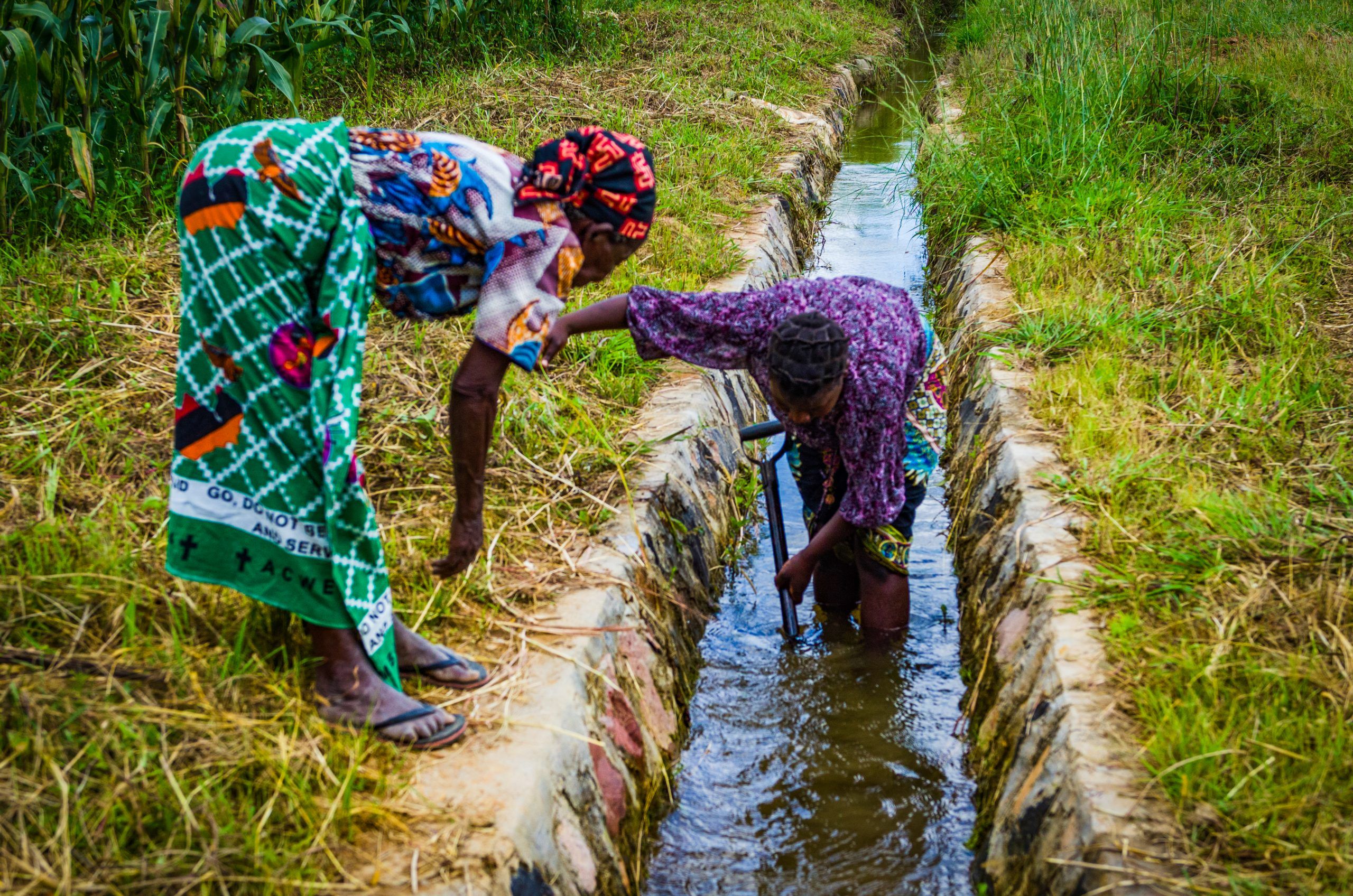
Women are empowered as water stewards. They e.g. maintain furrows of the Milundu stream, which serve the irrigation of crops that sustain the people of Lukupa Village. Copyright: GIZ
The Lusaka Water Security Initiative (LuWSI) has more than 31 members from private sector, public authorities, civil society and non-governmental organizations. Copyright: LuWSI
Location: Lusaka City
Aim: Strengthen multi-stakeholder collaboration to safeguard Lusaka‘s water resources while enhancing the sustainable and timely access to water and sanitation for all
NatuReS working areas: Cities, Economic Zones, Circular Economies
Partners: 33 public sector, private sector, civil society and international partners (all LuWSI partners)
Activities under LuWSI
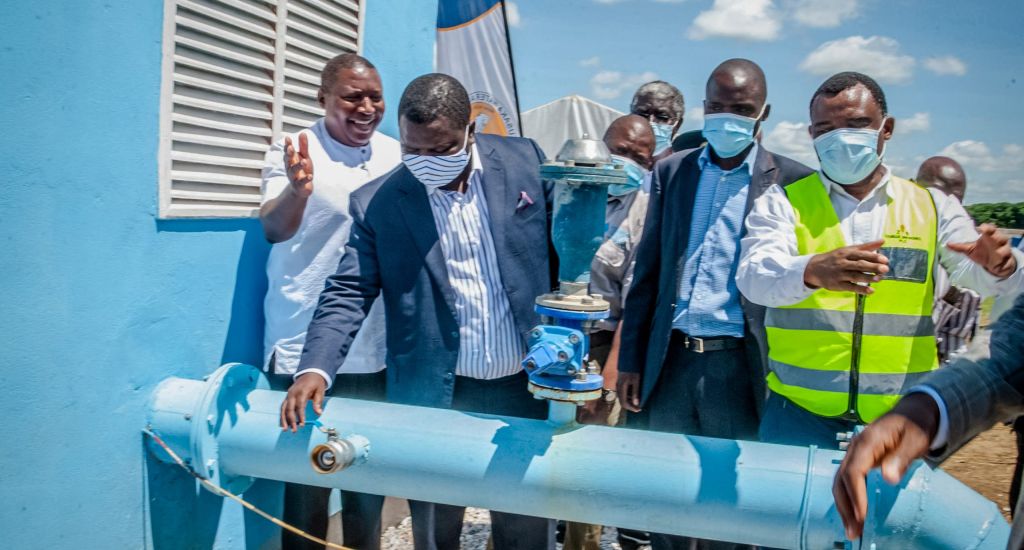
Installation of a 3.4 km pipeline to improve water access in a peri-urban community of 200,000 residents in Western Lusaka. Copyright: LWSC and Zambian Breweries
Lusaka West Water Supply Project (LWWSP)
- The project aims to improve water security for industries and marginalized communities in the Western part of Lusaka City and contribute to Lusaka West’s socio-economic development and resilience. It specifically seeks to provide and safeguard access to improved water supply, sanitation and hygiene.
Green Cities Adaptation Programme
- The umbrella programme supports groundwater and natural resources stewardship regarding green open spaces, infrastructure and services.
Wellfield Protection Project (WFPP)
- The objective is to protect two of Lusaka’s most strategic groundwater wellfields, Shaft 5 and Mass Media. Activities include preventing encroachment through the participatory development of inclusive recreation eco-parks around the wellfields, empowering communities in wards around wellfields and improving management of groundwater, waste and sanitation within wellfields and surrounding wards.
See here for more info and list of partners for this project.
Solid Waste and Sanitation Management Project
- The project focuses on promoting solid waste and sanitation and the sustainable management of hazardous waste. A multi-stakeholder partnership with key involvement of private sector actors, it aims at unlocking investments in solid and hazardous waste management and assist the local authority and environmental agencies to fulfil their mandate. It also simultaneously aims at changing the citizens’ perceptions in order for them to recognize waste as a resource and harness the benefits of a circular economy.
Green Schools Partnership Programme (GSPP)
- The programme focuses on improving and enhancing Water Sanitation and Hygiene (“WASH”) in all schools within Lusaka and specifically targets public and community schools in Lusaka’s most vulnerable (peri-urban) communities. With support from host communities and stakeholders it aims to inspire private sector organisations to address WASH challenges existing in schools within the district. Activities include the “Safe back to School” Campaign which ensures children’s return to school under safe measures during the Covid- 19 crisis and trains teachers and school staff on the safe measures.
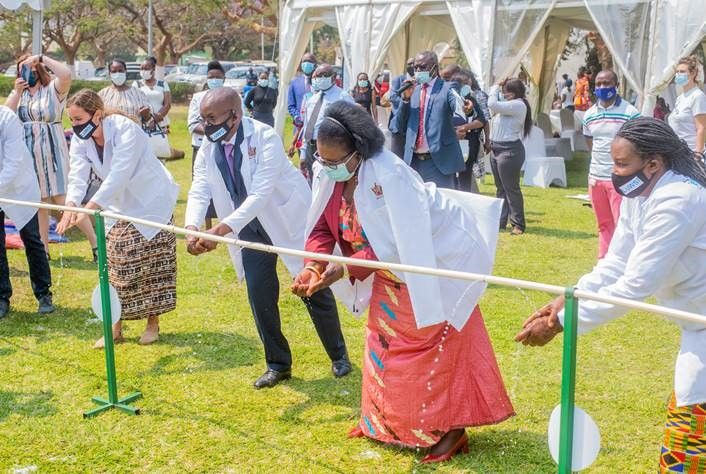
Handwashing demonstration at the launch of the ” Safe Back to School Campaign”. Copyright: GIZ
Corporate Stewardship
The project encourages companies to align their production processes to good water stewardship practices in order to protect resources. Current activity is the Annual Corporate Water Stewardship Award.
Partner Voices
“LuWSI has been working with the GIZ NatuReS program on various water projects and programmes. We have received support in terms of capacity development, technical support and process management. Our working relationship has resulted in improved partner management, engagement and learning of new approaches to our water security partnership and coordination. We have worked on the development of a Water Security Action and Investment planning process as well as capacity building for early carrer water professionals and decision makers from the community, and the private and public sector.”
Ms Brenda Mwalukanga – former LuWSI Coordinator
